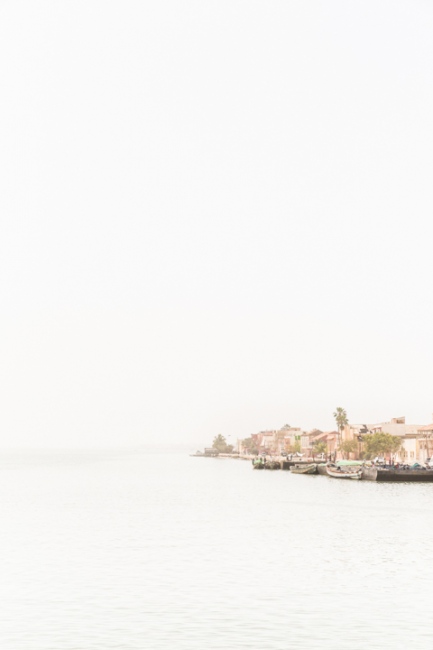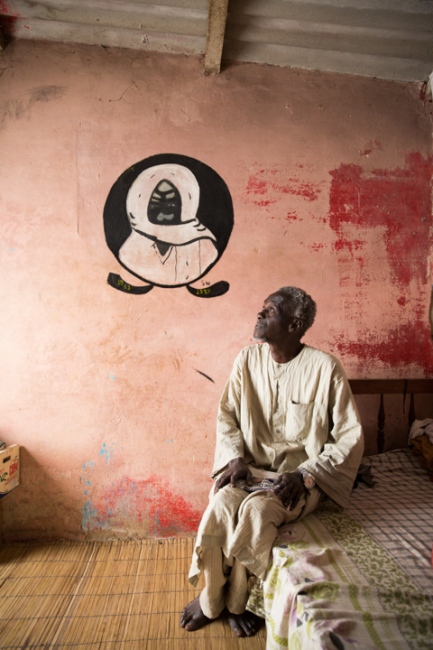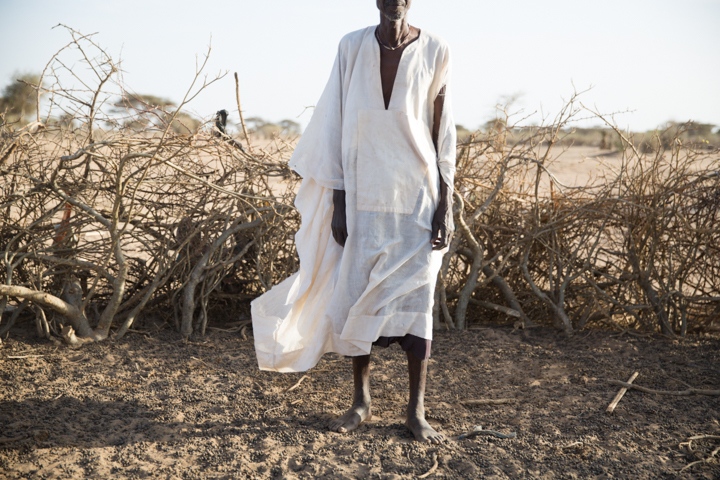In 2015, I made a pact with myself: a goal to spend one month of every year in a new place, working on one project. I chose Senegal, decided to do ample research before beginning my work, but shaping my project ultimately by what Senegalese people told me about what mattered to them.
My first week in Saint Louis, Senegal (also called Ndar, in Wolof) I didn't pick up my camera. I conducted some interviews and had conversations with anyone that was willing to talk to me. Within a few days, I knew that I needed to work on a project about climate change. I had heard stories of rising seas across the bridge in Guet Ndar, how the fishermen's homes were more regularly flooded. Nearby, people told me about land too dry to grow farmers' crops or sustain herders' animals.
On the morning of a particularly high tide, I woke up at sunrise and walked to Guet Ndar. The sea has risen so high, several homes had crumbled into the sea. I photographed families moving belongings out the front door, while the back rooms fell into the waves. The community had gathered together, using old fishing nets and chunks of cement to bolster the eroding shore. Over the span of the next few weeks, I photographed and interviewed local Senegalese climate scientists, farmers whose land had become either too salinized or dry for crops, herders who were seeking additional employment for the first time in their lineage as the land was no longer suitable for their animals, and fisherman who worried about rising seas and worsening storms.
When I left Senegal, I knew it was important to share the stories I'd gathered. I paired images with direct quotes from subjects, the photos and the words serving as testimonies about the human experience of climate change. I met with editors in New York and California. One of them told me, "This is good work, but it won't ever be published. People don't want to read about climate change. It's too scary, too depressing." It's a luxury, a privilege mostly for the wealthy to not have to think about the changing climate. But, for much of the world's population, especially those living in poverty or directly reliant on the land and sea, the stability of weather patterns is a matter of life and death, survival or catastrophe.
Over time, I began to see this project as a series of chapters. Thus far, I have completed three: Desert (Senegal), Tropic (Panama), and Arctic (Norway). In Panama, I spent time in two island communities in the Guna Yala: one already beginning the process of relocation due to rising seas and another, more remote community coping with the potential breakdown of subsistence farming, fishing, and foraging caused by changing weather patterns. Both communities had run out of clean drinking water as water sources went dry. Both faced fears about the future. In Norway, I again worked in two communities: one on the island of Sørøya, where hunters described a landscape they no longer recognized and fishermen worried about increasingly acidic seas and, the other, inland, where reindeer herders reported that some of their animals die each year as the tundra changes in warm winters.
I intend to work on three more chapters: Urban (currently researching India and China), Home (returning to my home state of Idaho) and Extraction (focusing on a community whose economy is dependent on fossil fuels). As I've worked on this project, I've begun to see deepen my own understanding about climate change, seeing it as a reflection of deeper, systemic issues: an extension of colonialism and a result of the flaws of capitalism. I've realized that it's not just an environmental issue, it's a human rights issue.
With this project, I have several immediate goals: to witness, document, and share the human experience of climate change; to do justice by the people who give me their stories; to provide new narrative and perspective about environmental issues beyond datasets or scientific reports; to seek the truth; to present both problems and solutions; and to allow room in the project for complexity, nuance, and beauty. Thus far, I have worked on this project entirely on my own, fully self-funded and self-motivated. I am applying for this grant because I believe in the potential impact of this project, and I seek support in completing and sharing these stories.












































